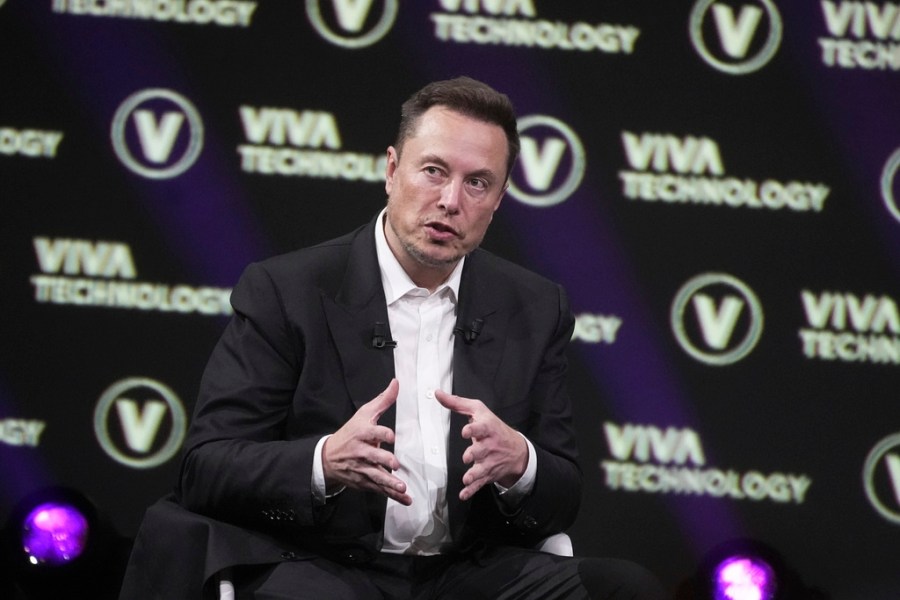America has never lacked political showmen. So when Elon Musk — a man as comfortable launching rockets as launching tweets — announces his intention to form a new political party, the instinctive response is skepticism, if not outright derision. Call it the “America Party,” he says, a banner for those tired of both elephants and donkeys. Naturally, the memes wrote themselves.
But peel away the theatrics, and something more consequential is hiding in plain sight: the yearning. Americans are not necessarily flocking to Musk’s cause, but millions are scanning the horizon for something else. The spectacle may be Musk’s — but the discontent it feeds on is widely shared.
It is tempting to dismiss this moment as déjà vu. Third-party attempts are stitched into America’s political folklore. From Theodore Roosevelt’s Bull Moose insurgency to Ross Perot’s data-heavy crusade, outsiders have long challenged the duopoly, only to be crushed by the machinery of incumbency.
The U.S. political system, with its winner-take-all incentives and rigid party structures, has proven uniquely impervious to disruption. But today’s landscape feels different — not because the rules have changed, but because the public mood has.
Start with trust — once a civic virtue, now a casualty. A Pew Research survey earlier this year found that only 22 percent of Americans trust the federal government to do what is right “just about always” or “most of the time” — down from over 70 percent in the 1960s. Meanwhile, Gallup reports that confidence in Congress sits at around 10 percent. This isn’t apathy. It’s disillusionment — a broad-based sense that the current political structure no longer listens, let alone delivers.
On July 3, Musk announced he formed the America Party, sparking immediate speculation about 2026 House races. A SnapPoll24 survey days later found 27 percent of Gen Z and Millennial respondents “interested” in supporting a non-affiliated candidate in 2026 — numbers that would have been inconceivable a decade ago.
Into this void steps Musk. Not with policy, not yet — but with performance. And in a media ecosystem where attention is power, that’s often enough. His platform remains a cipher, but the appeal is clear: disruption without the burden of ideology.
In an era when Democrats speak the lexicon of elite progressivism and Republicans oscillate between grievance and populism, Musk is offering a third lane defined not by ideas but by estrangement.
Of course, the barriers to entry remain formidable. Ballot access laws, campaign finance hurdles and entrenched party loyalties conspire to keep challengers out. But technology, once the ally of incumbents, now levels the field. A candidate with a smartphone, a war chest, and a loyal digital following can bypass gatekeepers entirely. Donald Trump did it in 2016. Sen. Bernie Sanders (I-Vt.) also built a movement with little more than a microphone and a mailing list.
And the center, as they say, cannot hold. Political polarization has pushed the parties to their ideological poles, leaving a vast no-man’s-land where independents, moderates and suburban voters wander unaffiliated. Recent data shows that 43 percent of Americans identify as independents. The appetite for a new voice is real. What remains elusive is whether it can be organized into a coherent political force.
That’s where most third-party ventures falter. They speak fluent grievance but go silent on governance. They thrive on outrage, but wither when the conversation turns to solutions. That’s not a bug; it’s the structure. Populism, left or right, is easiest to sell when your only goal is to sneer at the system. Governing, however, requires trade-offs — something Musk has famously disdained, whether building tunnels or tweeting policy.
Still, disruption has value, even when it fails. By threatening the status quo, it can jolt legacy parties into responsiveness. Consider Emmanuel Macron in France. His upstart party dislodged a calcified system not because it was flawless, but because it was fresh. Similar stories have played out in Italy, Chile, and even Taiwan — democracies where old parties collapsed under the weight of their own complacency. The U.S., with its older institutions and more rigid rules, may prove harder to crack — but pressure matters.
America’s founders never envisioned permanent political parties. They built a framework — checks, balances, federalism — that could outlast any faction. That resilience is a double-edged sword. It guards against demagoguery, yes, but also cushions the sclerosis of status quo governance. Change, when it comes, is rarely elegant. But it is often catalyzed by those who seem least likely to lead it.
So no, the America Party is unlikely to take Congress by storm. It may not even make it past a news cycle. But its emergence is a flare, signaling a deeper instability in the system. If Democrats and Republicans choose to ignore it, they do so at their peril. Voters are not disengaged — they’re disenchanted. And if Musk’s provocation forces the parties to rethink how they earn trust, rather than expect it, then even his most outlandish political experiment will have served a purpose.
The challenge — and opportunity — for America’s institutions is not to suppress these new voices, but to absorb their critiques and adapt. Ranked-choice voting, open primaries and campaign finance reform are not silver bullets, but they might be the scaffolding for a democracy that listens before it crumbles.
It is often said that democracies renew themselves not through revolution, but through adaptation. Perhaps this is one of those moments. And perhaps it will take the world’s richest man, hurling rhetorical grenades at both parties, to remind the establishment that the center of gravity is not fixed. It moves — sometimes suddenly — and often under their feet.
Imran Khalid is a physician and has a master’s degree in international relations.
Copyright 2025 Nexstar Media, Inc. All rights reserved. This material may not be published, broadcast, rewritten, or redistributed.
For the latest news, weather, sports, and streaming video, head to The Hill.

